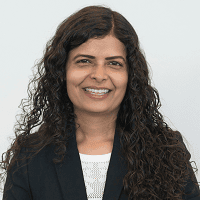The American Historical Association is pleased to announce that the opening plenary session on “The Confederacy, Its Symbols, and the Politics of Public Culture” at its 130th annual meeting in Atlanta, Georgia, will be free and open to the public.
Chaired by David W. Blight (Yale Univ.), the plenary will contend with questions about the evolution of Confederate iconography, and why symbols, including the flag, statues, and monuments such as Stone Mountain, remain cultural and political flashpoints in the United States. The plenary will feature several historians of the American South, including Daina Ramey Berry (Univ. of Texas at Austin), W. Fitzhugh Brundage (Univ. of North Carolina at Chapel Hill), Jane Turner Censer (George Mason Univ.), and John Coski (American Civil War Museum).
Addressing the current public debate surrounding Confederate symbolism, the historians will reflect on the relationship between celebration, commemoration, memory, and history. Drawing on their expertise on the specifics of each situation, knowledge of similar controversies in the past, and the insights of historical thinking itself, the historians will also deliberate on what can and cannot be accomplished by the removal/relocation of Confederate symbols.
The plenary will be held in Grand Ballroom D on the second floor of the Hilton Atlanta on January 7, 2016, from 8:30-10:00 p.m.
The American Historical Association is a nonprofit membership organization founded in 1884 and incorporated by Congress in 1889 for the promotion of historical studies. The AHA provides leadership for the discipline, protects academic freedom, develops professional standards, aids in the pursuit and publication of scholarship, and supplies various services to sustain and enhance the work of its members. As the largest organization of historians in the United States, the AHA comprises more than 13,000 members and serves historians representing every historical period and geographical area. For further information, go to www.historians.org or call 202-544-2422.
This post first appeared on AHA Today.
This work is licensed under a Creative Commons Attribution-NonCommercial-NoDerivatives 4.0 International License. Attribution must provide author name, article title, Perspectives on History, date of publication, and a link to this page. This license applies only to the article, not to text or images used here by permission.



